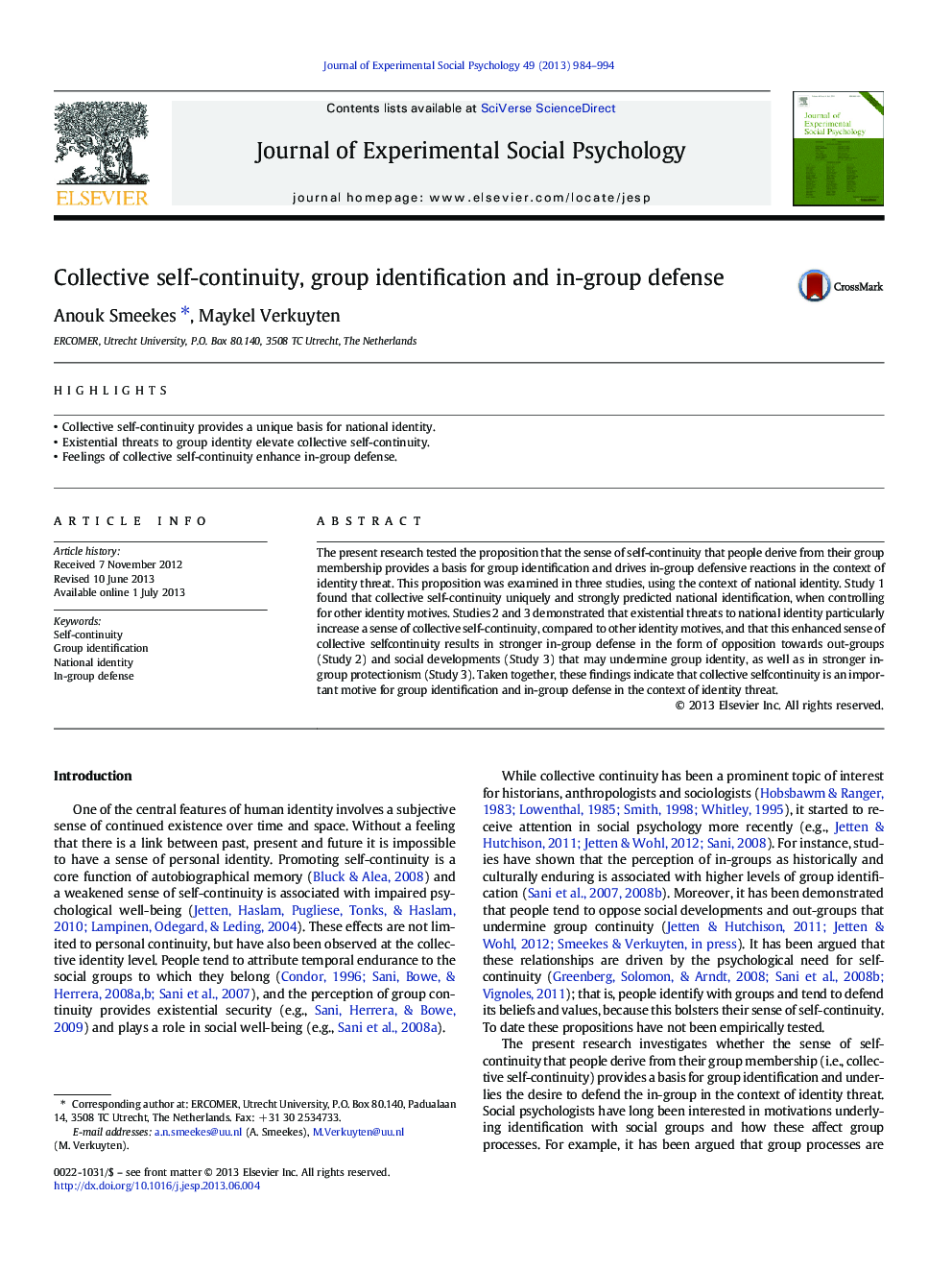| Article ID | Journal | Published Year | Pages | File Type |
|---|---|---|---|---|
| 10468540 | Journal of Experimental Social Psychology | 2013 | 11 Pages |
Abstract
The present research tested the proposition that the sense of self-continuity that people derive from their group membership provides a basis for group identification and drives in-group defensive reactions in the context of identity threat. This proposition was examined in three studies, using the context of national identity. Study 1 found that collective self-continuity uniquely and strongly predicted national identification, when controlling for other identity motives. Studies 2 and 3 demonstrated that existential threats to national identity particularly increase a sense of collective self-continuity, compared to other identity motives, and that this enhanced sense of collective selfcontinuity results in stronger in-group defense in the form of opposition towards out-groups (Study 2) and social developments (Study 3) that may undermine group identity, as well as in stronger in-group protectionism (Study 3). Taken together, these findings indicate that collective selfcontinuity is an important motive for group identification and in-group defense in the context of identity threat.
Related Topics
Life Sciences
Neuroscience
Behavioral Neuroscience
Authors
Anouk Smeekes, Maykel Verkuyten,
